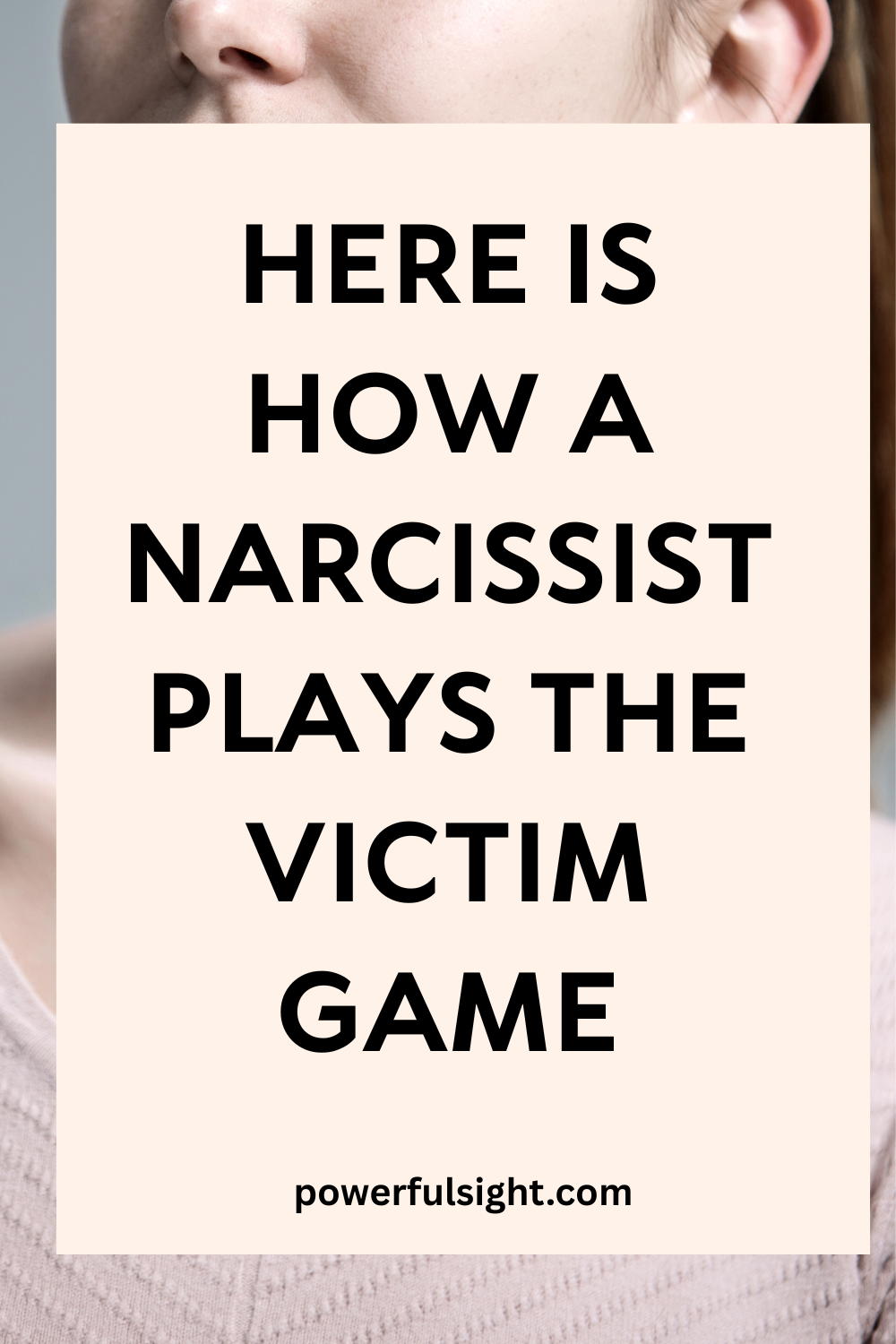As I reflect on my relationship with my ex — the one who always seemed to end up hurt regardless of the circumstances — one pattern seems clearest of all: the victim game. It was not always loud or dramatic either.
Very often it began innocently, a sigh, a hard look, a tale of how the world was out to get her and eventually she had a script where she was somehow never really in charge of things.
If you have ever been in a situation like this, it is easy to see why — it is exhausting, makes you feel guilty, and is sheer agony to live your life because everything that happens to you is your fault.
In this article I want to show you what that victim game is, how it holds you hostage and — most importantly — what specifically you can do to safeguard yourself while at the same time being grounded and humane.

What the victim game really is
Playing the victim doesn’t always mean crying on the couch or taking the dramatic route with accusing friends.
At its root, it is a tactic in which someone presents themselves as oppressed, wronged, or helpless in order to garner sympathy, dodge responsibility, tell their own story, or punish you.
A person who uses this tactic may really feel hurt — but they constantly transform pain into an alibi that frees them from taking their fair share of responsibility.
From what I experienced, the victim game generally contains:
Selective memory: Memories tend to portray yourself in a victim role.
Emotional blackmail: “After all I’ve gone through, how could you do this to me?”
Clearing all trails: Using your perfectly legitimate grievances to prove that you’re the villain.
Martyrdom: Making every sacrifice count as evidence that you have done something wrong because you don’t let gratitude flow in your spirit for the sacrifice.
Gaslighting disguised as sensitivity: “You’re the one who’s cruel, I’m just telling you how I feel,” and implicitly there’s something wrong with you for questioning them.
How it looks (so that you know you’re not crazy)
It’s confusing. You give an example or set a boundary; suddenly you are the bad guy. You fall into guilt because you want the peace.
You begin walking on eggshells. I would apologize for things I did not do to end the fight and calm things down, only to have the same situation repeat.
If you’re nodding while reading this, know that your reaction is normal. The victim game is a simple way to get you to question your reality. So the first step is to identify the pattern clearly.
Real-life examples (from my experience):
If I wanted to spend time hanging out with friends, she would ask for some space and then spend twenty minutes listing the ways in which I had left her (arguing that I had caused her to feel lonely by leaving her alone), then call me insensitive for not giving her another chance while I was with my friends.
When I attempted to discuss our communication difficulties, she would use a childhood trauma story to shut down the discussion, framing any critique as an “attack on her.”
Important promises would be framed as sacrifices she “had” to make, then presented as evidence of how ungrateful I was if I expected us to change.
These moments were draining because of their unfairness — and that’s because they were. But they also obligated me to repair her pain, which made it possible for her to exert control over me.
Why people play the victim (temporarily)
There are reasons for the behavior: insecurity, learned behaviors from parents or other adults during childhood, attention-seeking, or a way of avoiding responsibility for one’s actions.
Of course, at times it becomes a self-defense mechanism. That’s not to excuse the harm, but it does help explain why calling someone a “narcissist” doesn’t capture the whole picture. In my case, not getting hung up on the root cause helped me be less affected by the game.
Related: How To Deal With A Narcissistic Boyfriend
How to respond — actionable steps you can take
Being firm doesn’t mean being cruel. These are practical strategies I learned the hard way:
-
Validate feelings — not the manipulation
You can assure someone that you recognize what they feel without taking responsibility for their feelings. Try:
“I hear that you feel hurt. I want to understand that, but I don’t feel that I am to blame for what you described.”
This prevents escalation because it shows empathy while simultaneously upholding boundaries.
-
Name the pattern calmly
When the victim script appears, call it out calmly:
“I notice when this happens, the conversation shifts to how I’m always the one who hurts you. I’d like to speak about the problem, not who is at fault.”
Keep your tone neutral. A pattern loses power once you name it.
-
Set clear boundaries and consequences
Boundaries are clarifying statements, not punishments. For example:
“Please speak to me respectfully and without implying I am responsible for the past. If you can’t, we can step away from this conversation until we can speak calmly to each other.”
Follow through on consequences. Even if the other person knows the pattern, empty threats teach them the game works.
-
Keep records when necessary
If fights are regular and extreme, keep a record of what happened and when. This can help you see the pattern more objectively, and it can be handy if you need to seek outside help. -
Don’t play rescuer
You don’t have to fix somebody else. There’s a difference between being responsible for how someone feels and being compassionate toward how someone feels. If your life revolves around fixing their suffering, that’s a red flag. -
Use timeouts strategically
It’s OK when an emotional spiral starts to say, “I need to take a step back because this is unproductive. We can come back when we can both talk calmly.” Use timeouts to de-escalate, not to avoid accountability. -
Seek outside perspective
Visit a trusted friend, therapist, or mentor. When I began telling others what I was seeing, it became clear how distorted my view had become. Sometimes someone on the outside can validate your experiences and provide sound guidance.
Related: Here Is How Narcissists Love
What to say — brief scripts that helped me
“I’m sorry you feel hurt. I didn’t mean it that way, but I can’t accept being blamed for everything.”
“I want to understand you, but I can’t if the conversation turns into accusations. Can we revisit this when we’re calmer?”
“I care about you. I also cannot put my mental health at risk. My response is usually: ‘I’m going to take a timeout, and I’ll check back when we can have a respectful conversation.’”
Keep them short. Very long explanations allow the pattern to mangle your words.
When it’s time to walk away
Sometimes patterns are changeable; sometimes they’re not. If you set limits and they’re not respected, or if the victim role is used to manipulate, isolate, or control you, then you need to create distance. I didn’t want to leave, but staying forced me to minimize my own needs and apologize for things I hadn’t done.
If you find yourself shrinking, hiding parts of your life, or constantly apologizing to keep the peace, that’s a strong indicator. Leaving isn’t a failure — it can be an act of self-preservation.
Aftermath: healing for you
If you’ve been in a situation where someone treated you like a victim, you might feel guilty, confused, or even question whether you were the problem. That’s normal. Do these things as you heal:
Reconnect with friends and hobbies to rediscover your sense of self. This will help you identify patterns and avoid second-guessing yourself later. Consider therapy for unresolved guilt and trauma bonds. Remember to be kind to yourself — growth is a process.
Final note
I believe in compassion. Often the people participating in the victim game are themselves hurt. But compassion has nothing to do with giving up your boundaries or letting yourself be manipulated. You can believe both things at once: the other person may be hurtful, and you don’t owe them power in your life.
I learned to say “I care about you” and define it in context — and I learned that I would not be made into the villain.
If you’re in the middle of it right now, allow yourself to protect the peace. It is not harsh; it is truthful. You deserve relationships where responsibility is shared, where there is accountability, and where no one is gaslighted under the guise of empathy.
If you’d like, I can draft sample messages or scripts you can use in an actual conversation, or help write a boundary statement for you. I’ve navigated through the fog — and I didn’t get through it alone — so I’m here to guide you out of it.
Save the pin for later

